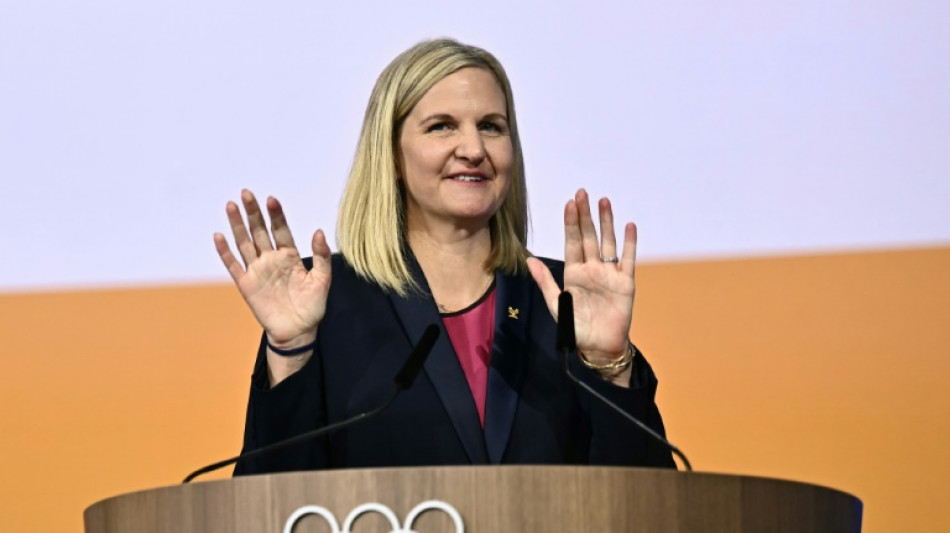
-
 Denmark says airport drone flights designed to create fear
Denmark says airport drone flights designed to create fear
-
Alcaraz survives injury scare and rain delay to win Tokyo opener
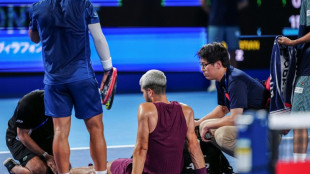
-
 Ticketmaster agrees clearer prices after Oasis probe
Ticketmaster agrees clearer prices after Oasis probe
-
Stocks downbeat ahead of key US data
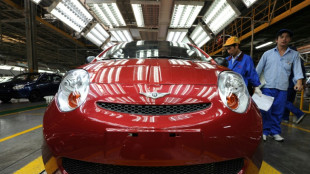
-
 EU opens antitrust probe into German software giant SAP
EU opens antitrust probe into German software giant SAP
-
Meet Ali Akbar, the last newspaper hawker in Paris

-
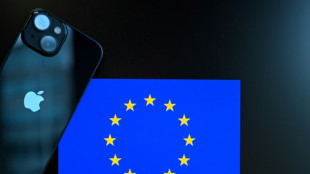 EU rejects Apple demand to scrap landmark tech rules
EU rejects Apple demand to scrap landmark tech rules
-
England captain Aldcroft says it's 'our time now' ahead of World Cup final
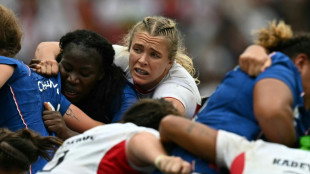
-
 Toyota opens high-tech village in Japan to road test the future
Toyota opens high-tech village in Japan to road test the future
-
Ticketmaster agrees clearer prices after Oasis probe: UK regulator

-
 Marseille hoping to prove title credentials after win over PSG
Marseille hoping to prove title credentials after win over PSG
-
Germany must move quicker on reforms, say experts

-
 PSG star Hakimi says at 'peace' despite rape allegation
PSG star Hakimi says at 'peace' despite rape allegation
-
India spin great Ashwin joins Australia's BBL in first
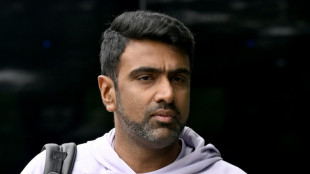
-
 France's ex-president Sarkozy convicted in Libya trial
France's ex-president Sarkozy convicted in Libya trial
-
Dutch lead charge on electric inland vessels

-
 Red-hot Kane on record course with Bremen in his sights
Red-hot Kane on record course with Bremen in his sights
-
Vietnam jails dozens in $3.8 bn online gambling and crypto case

-
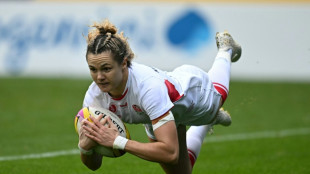 England unchanged for Women's Rugby World Cup final against Canada
England unchanged for Women's Rugby World Cup final against Canada
-
Swiss central bank keeps zero-rate as tariffs take their toll

-
 Denmark says 'professional actor' behind drone flights over airports
Denmark says 'professional actor' behind drone flights over airports
-
Marquez looking to crown comeback with MotoGP title in Japan

-
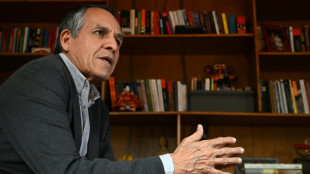 Colombia's top drug cartel in decline, may lay down arms: negotiator
Colombia's top drug cartel in decline, may lay down arms: negotiator
-
Snoop Dogg 'in love' with Australian Rules football

-
 Former NBA star Harrell axed by Adelaide 36ers over drugs
Former NBA star Harrell axed by Adelaide 36ers over drugs
-
Townsend pulls out of Beijing following 'crazy' Chinese food post

-
 Under promise, over deliver? China unveils new climate goals
Under promise, over deliver? China unveils new climate goals
-
'Morgue is full': how Kenyan starvation cult kept killing

-
 Nickel mining threatens Indonesia coral haven, NGOs warn
Nickel mining threatens Indonesia coral haven, NGOs warn
-
Drones fly over multiple Danish airports

-
 Raleigh reaches 60 homers as Mariners clinch first division title since 2001
Raleigh reaches 60 homers as Mariners clinch first division title since 2001
-
Savea leads 'stung' All Blacks, Wallaby Slipper to hit 150 Test milestone

-
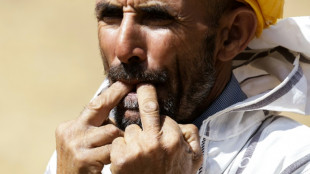 Morocco High Atlas whistle language strives for survival
Morocco High Atlas whistle language strives for survival
-
Glimmering sea of solar as China expands desert installation
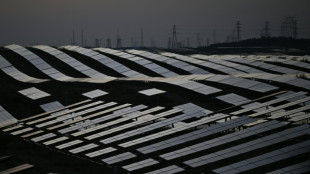
-
 France's Sarkozy set to learn fate in Libya case
France's Sarkozy set to learn fate in Libya case
-
Clean-up underway in southern China after Typhoon Ragasa sweeps through

-
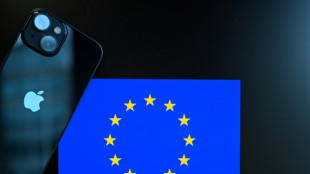 Apple asks EU to scrap landmark digital competition law
Apple asks EU to scrap landmark digital competition law
-
Asian markets slide as traders prepare for key US data
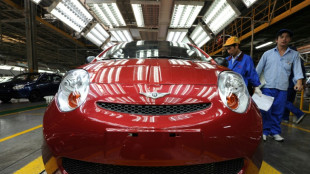
-
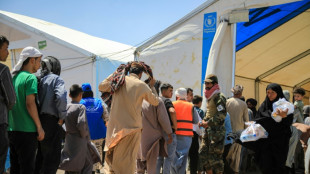 Return of millions of Afghans fuels terror potential
Return of millions of Afghans fuels terror potential
-
Savea to lead 'stung' All Blacks as Robertson makes four changes

-
 'Shut your mouth': Low-paid women still waiting for their #MeToo
'Shut your mouth': Low-paid women still waiting for their #MeToo
-
Famed 'sponge cities' Chinese architect dead in Brazil plane crash

-
 Palestinian leader to address UN as peace push gathers steam
Palestinian leader to address UN as peace push gathers steam
-
Canada's Indigenous wary of mining push in rich 'Ring of Fire'
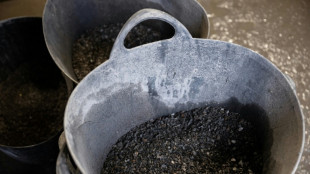
-
 Trump visit adds to intensity as Ryder Cup looms
Trump visit adds to intensity as Ryder Cup looms
-
Savea to lead All Blacks as four changes made to face Wallabies

-
 Kimmel scores decade-high ratings amid Trump fight: Disney
Kimmel scores decade-high ratings amid Trump fight: Disney
-
Trump trolls Biden with White House 'autopen' portrait

-
 Low bar, high hopes: China unveils new climate goals
Low bar, high hopes: China unveils new climate goals
-
Under-fire Brazil Senate scraps immunity bid


As sports embrace gender tests, Coventry and IOC may follow
As the gender furore that engulfed boxing at the 2024 Paris Olympics rumbles on, the International Olympic Committee (IOC) is weighing reintroducing testing, while several sports have already embraced testing for male chromosomes.
Such testing has its critics and the Olympics have already tried it once only to abandon it in 1996.
Incoming president Kirsty Coventry, who will become the first woman to lead the Olympic movement when she starts her term on Monday, signalled a change of direction on this politically inflammatory and scientifically complex issue when she was elected in March.
"We will protect the female category and female athletes," said Coventry, a Zimbabwean swimmer who won seven Olympic medals.
At recent Games, the IOC has left responsibility for setting and enforcing gender rules to the international federations who run their sports.
"I want the IOC to take a little bit more of a leading role," Coventry said, adding that she planned to create "a task force."
Even before Coventry begins her consultations, World Athletics and World Boxing have adopted chromosomal testing -- generally a cheek swab. World Aquatics in 2023 adopted a policy that foresees such testing.
Their rules make participation in women's competition conditional on the absence of Y chromosome genetic material -- known as the SRY gene, an indicator of masculinity.
- 'Non-invasive' -
Only "XX athletes", as World Athletics calls them, can compete. Both transgender women and those who have always been considered female but have XY chromosomes -- a form of "differences in sex development" (DSD) -- are excluded.
On the surface, chromosomal screening simplifies access to women's competition, which has long been the subject of varied regulations and scientific and ethical debates.
Last October, the United Nations Special Rapporteur on Violence against Women and Girls, Reem Alsalem, told the UN General Assembly that such tests were "reliable and non-invasive."
The gender debate reignited in June around Paris Olympic boxing champion Imane Khelif.
The Algerian was at the centre of a violent controversy over her gender last summer stoked by Donald Trump, Italian Prime Minister Giorgia Meloni, and Harry Potter author J.K. Rowling.
World Boxing, which is taking over running Olympic boxing in Los Angeles in 2028, ordered Khelif to undergo testing before a competition in the Netherlands in early June. She skipped the event.
During the Paris Games, the International Boxing Association, which was booted out of the Olympics by the IOC in 2019, accused Khelif, raised as a girl, of carrying XY chromosomes.
Chromosomal screening attracts criticism, notably from the World Medical Association and human rights organisations.
- 'Highly invasive' -
"It is far from being scientifically accurate as a performance indicator, while being very harmful to the athletes affected," Madeleine Pape, a sociologist of gender in sport at the University of Lausanne, told AFP.
While World Athletics and World Aquatics both say transgender women have a muscular advantage, Pape, who ran the 800m for Australia at the 2008 Beijing Olympics, disagrees.
She said there is a lack of research proving that transgender athletes or those with or one of the many forms of DSD gain a "disproportionate advantage" over XX competitors.
Explaining performance is so complex that this uncertainty applies to "all athletes," said Pape.
She also said it was possible to have an XY chromosome while being "totally or partially insensitive to testosterone," as was the case with Spanish hurdler Maria Jose Martinez-Patino, who after missing out on the 1988 Olympics was the first woman to successfully challenge the femininity tests in court.
Aware of these limitations, World Boxing and World Athletics are proposing additional steps after SRY screening which could include anatomical examination.
"Chromosomal tests seem very simple, very clean, but there is a lot of complexity behind them: potentially a highly invasive and non-standardised gynaecological examination, or expensive genetic sequencing that is inaccessible in many countries," said Pape.
Ultimately, the future of such tests could be decided in the courts.
The European Court of Human Rights is expected to rule on July 10, for a second time, on the case of DSD athlete Caster Semenya, the double Olympic 800m champion.
The South African was barred from competing under an earlier version of the World Athletics rules. In 2023, the court ruled that her rights had been infringed but that decision did not force WA to reinstate her.
P.Vogel--VB
